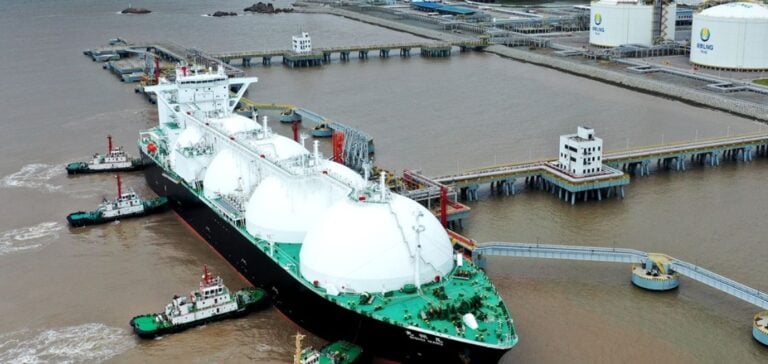Discussions between Russia and China on the construction of the Power of Siberia-2 pipeline have hit a major roadblock. Beijing is demanding prices close to Russia’s subsidized domestic tariffs, a demand Moscow considers unacceptable. What’s more, China is only committed to purchasing a fraction of the planned annual capacity of 50 billion cubic meters of gas.
Background and challenges
For several years, Russia and China have been negotiating the construction of the Power of Siberia-2 pipeline, which would transport 50 billion cubic meters of natural gas per year from Russia’s Yamal region via Mongolia to China. This project is crucial to the diversification of Russian energy exports, especially after the reduction in supplies to Europe. However, negotiations are hampered by the strict conditions imposed by China. Beijing wants to pay prices almost equivalent to the domestic tariffs subsidized by the Russian government. This request, if accepted, could significantly reduce Russia’s potential revenues from the pipeline.
Positions and strategies
As a major consumer of natural gas, China uses its position to obtain the most advantageous terms possible. By committing only a small share of the pipeline’s annual capacity, Beijing limits its obligations while maximizing its negotiating leeway. For its part, Russia, faced with economic sanctions and the need to find new markets for its gas, is under pressure to conclude this agreement. According to the Financial Times, sources close to the negotiations have revealed that Russia considers the Chinese demands unreasonable. Russia’s Deputy Prime Minister, Alexander Novak, said last month that an agreement on the Power of Siberia-2 would be signed “in the near future”.
Economic and geopolitical impact
The outcome of these negotiations will have a significant impact not only on the economies of both countries, but also on the global energy market. If an agreement is reached, it will strengthen China’s position as the main consumer of Russian gas, reducing Russia’s dependence on the European market. On the other hand, failure could force Russia to look for other trading partners, complicating its long-term energy strategy. For China, obtaining gas at reduced prices would support its economic growth and energy transition. However, protracted negotiations could delay these benefits and affect the region’s energy security. The challenge for Russia is to strike a balance between yielding to Chinese demands and protecting its gas revenues. For China, it means securing a reliable source of energy at a competitive cost. Analysts believe that the two countries will eventually reach a compromise, given their shared strategic interests. However, the road to this agreement seems to be strewn with pitfalls, and each party will have to make significant concessions to reach a consensus. The agreement on the Power of Siberia-2 pipeline represents a crucial milestone in energy relations between Russia and China. The current negotiations, though difficult, reflect the complex dynamics of the global energy market and the economic strategies of the two powers. The coming months will be decisive for the future of this project and for regional geopolitical balances.






















